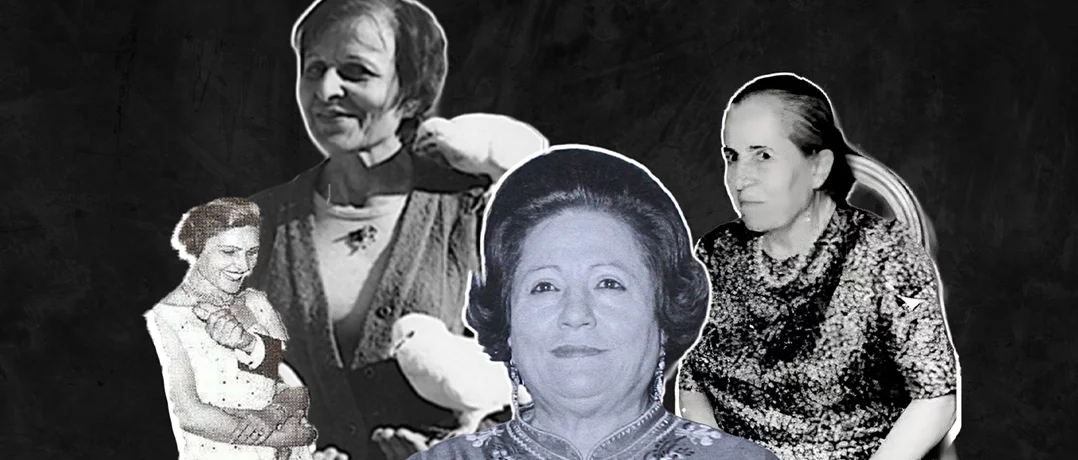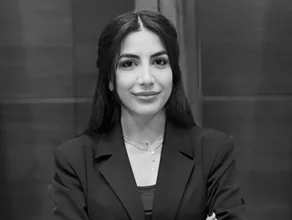Unsung women leaders helped drive Lebanon’s independence and advance women’s rights through activism, advocacy, and cultural influence.
Unsung heroines of Lebanon’s independence
Unsung heroines of Lebanon’s independence


They didn’t sign the independence documents. They weren’t painted in history books. But they were in the streets, in secret meetings, in the heart of a nation’s fight for freedom. From leading protests to shaping ideas, from organizing marches to challenging social norms, these women carried Lebanon on their shoulders, often without recognition. These women’s contributions were not just symbolic: they helped build the foundations of Lebanon in 1943.
This is their story.
Maude Motran Fajrallah (1909–1995)
Born into Beirut’s elite Sursock family, Maude Motran Fajrallah used her aristocratic roots and cosmopolitan education to become an influential, though often understated, figure in Lebanon’s independence movement. Well-connected in both Lebanese and British political circles, she turned her famous Zoukak El-Blat salon into more than a social hub, it became a discreet center for political coordination and messaging during the mandate era.
Fajrallah maintained a close relationship with British General Edward Spears, relaying vital information between patriots and warning Lebanese leaders about the stakes of their struggle. Her home hosted discussions that linked the Constitutional Bloc with broader independence efforts, making her salon a strategic space where ideas, plans, and alliances were carefully shaped behind the scenes.
While some view her as a privileged socialite, others recognize her as a tactful political actor whose influence helped shape critical moments in Lebanon’s path to independence. Through her salons, networks, and behind-the-scenes activism, Fajrallah exemplified the subtle yet decisive ways women contributed to the nation’s liberation.
Mounira Solh (1901–1996)
Mounira Solh is widely considered one of the most prominent female figures of the 1943 independence demonstrations. She studied at the American Junior College for Women (now part of Lebanese American University) and, inspired by her education, became politically active.
During the independence movement, she joined protests demanding an end to the French mandate, not just for Lebanon’s political freedom, but also for social justice. Her commitment didn’t end with independence: in 1960, Solh ran for a seat in Parliament, becoming one of the first Muslim women in Lebanon (and arguably in the Arab world) to run for legislative office.
Beyond politics, she combined her national activism with a deep commitment to humanitarian work. After personal tragedy, her child was born with a disability, she founded the Al Amal Institute for the Disabled, a pioneering institution in Lebanon.
Her life’s work spanned women's rights, disability rights, and civic engagement, making her a defining figure of a modern, inclusive Lebanon.
Najlaa ZeinEddine Saab (1908–1971)
Najlaa ZeinEddine Saab was a determined feminist and nationalist from Ayn El Konneyeh. Coming from a family active in anti-mandate politics, she became a leading voice for women in Lebanon. Saab headed the Lebanese Women’s Union and served as vice-president of the Lebanese Red Cross, combining civic service with political activism. She stood firmly against the French Mandate, mobilizing women to fight for independence and equality. Saab’s leadership showed that the struggle for Lebanon’s freedom was inseparable from the fight for women’s rights.
Evelyne (Toueini) Bustros (1878–1971)
Evelyne Bustros came from a prominent Beirut family and used her literary and social influence to push for change. Educated in Paris, she returned to Lebanon and launched a life of activism and culture.
She was elected President of the Women’s Renaissance in 1934, a position she held for 35 years, through the mandate, the war years, and into the early decades of independence.
On November 12, 1943, she was instrumental in organizing a major women’s march calling for independence, one of the key mass mobilizations of the era.
Bustros also promoted cultural dialogue and intellectual growth: she founded salons, supported Christian-Islamic understanding, and contributed to Lebanon’s literary scene. Her leadership helped institutionalize women’s influence in public life.
Ibtihaj Qaddoura (1889–1971)
A tireless pioneer of women’s rights, Ibtihaj Qaddoura started her activism very early, in 1914 she co-founded the Awakening of the Young Arab Women Association.
She later became chair of major organizations: she led the Arab Lebanese Women’s Union (formerly the Women’s Union) and presided over the Lebanese Council for Women between 1953 and 1966.
In 1936, speaking on behalf of the Women’s Union, she submitted a petition to Parliament demanding that women be recognized as full citizens. Her activism was not limited to petitions: she organized demonstrations, removed her hijab in political protest, and remained deeply involved in political and social change for decades.
Laure Thabet (1896–1981)
Laure Thabet was a Christian feminist from Lebanon’s elite circles who believed that women’s emancipation was essential for the country’s independence and future.
After a split within the women’s movement in 1946, she became president of the Christian Women’s Solidarity Association. Her leadership and vision helped organize Christian women’s groups and built a bridge between national liberation and gender equality, arguing powerfully that a free nation must also be inclusive.
Rose Ghorayeb (1909–2006)
Rose Ghorayeb was a literary pioneer: a writer, critic, and feminist who became known as the first female critic in Arabic literature. She taught Arabic literature (notably at Lebanese American University) and contributed to feminist discourse through her writing, including in The Woman’s Voice magazine. Her intellectual influence extended far beyond independence: she nurtured a generation of thinkers and emphasized the role of women in public and cultural life.
Zahia Kaddoura (1920–2002)
An academic and advocate, Zahia Kaddoura broke numerous barriers. She earned her PhD in Arabic and Islamic history from a university in Egypt, becoming the first Lebanese woman to do so. Back in Lebanon, she became Dean of Literature and Human Sciences at the Lebanese University, the first woman to hold such a senior post there. Her scholarly work often focused on the contributions and rights of Muslim women, and she used her academic platform to argue for a socio-politically free Lebanon where women play a central role.
These women were not marginal figures. They were central to building modern Lebanon in three keyways.
They organized, petitioned, and marched, even when few took them seriously. Their activism helped tie the cause of nationalism to demands for gender equality.
They founded and led major women’s organizations (Women’s Union, Lebanese Council for Women, Christian women’s associations) that continued long after independence.
Through writing, education, and academia, they challenged social norms and laid the ideological groundwork for future generations.
Though their names are less visible in many history books, their impact remains: they shaped civil society, expanded the definition of citizenship, and insisted on a vision of Lebanon that included its women.
Their stories also remind us that independence was not just political; it was a social revolution too. These women showed that building a free country meant fighting for freedom within it.
As Lebanon continues to wrestle with identity, rights, and democracy, remembering their legacy is not just historical, it’s deeply relevant.


